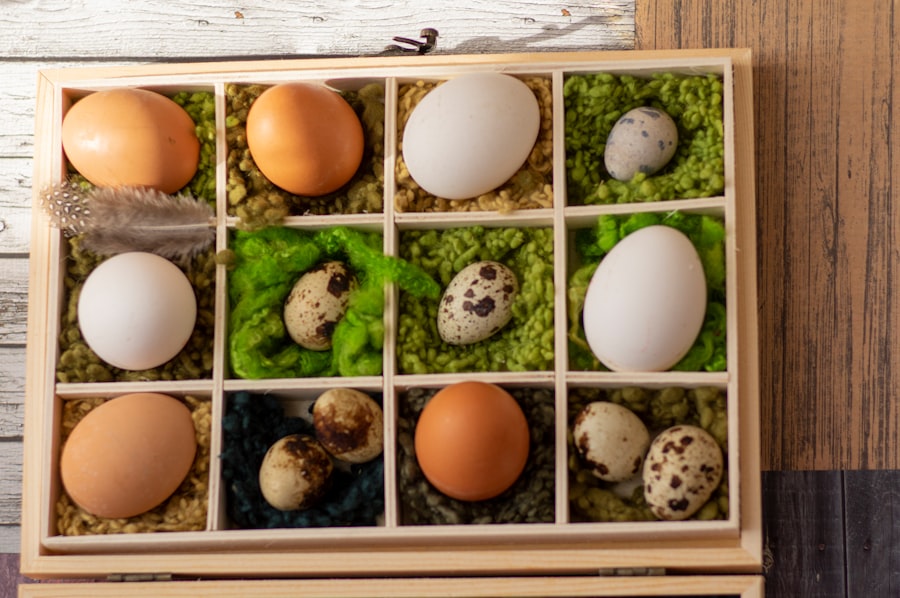Chickens and rats have a complex relationship influenced by their natural behaviors and instincts. Chickens are foragers that search for insects, seeds, and other food sources by pecking and scratching the ground. Rats are opportunistic scavengers that consume a wide variety of food, including chicken feed, eggs, and young chicks.
This overlap in food preferences can lead to conflicts, as rats may be attracted to chicken coops and feeders. Competition for nesting and shelter spaces also exists between chickens and rats. Rats may invade chicken coops to steal eggs and pose a threat to young chicks.
This competition can result in stress and reduced productivity for the chicken flock, as well as potential health risks from rat-borne diseases. Understanding these dynamics is essential for farmers and homesteaders seeking to manage rat populations effectively using chickens. Conversely, chickens can play a role in controlling rat populations on farms.
Their natural behaviors and instincts can be utilized to deter rats and reduce their numbers, offering a natural and sustainable pest control method. By comprehending the relationship between chickens and rats, farmers can implement strategies that leverage chickens’ natural behaviors to effectively manage rat populations on their property.
Table of Contents
Key Takeaways
- Chickens and rats have a complex relationship, as chickens can both attract and deter rats.
- Chickens can help control rat populations by preying on rats and consuming their eggs and young.
- Keeping chickens for rat control can also provide additional benefits such as pest control and fertilizer production.
- Tips for using chickens to deter rats include providing proper housing and food, and using chicken wire to prevent rat access.
- Potential challenges of using chickens for rat control include the risk of disease transmission and the need for proper management and care.
- Other methods for rat control on the farm include using traps, baits, and natural predators such as cats and owls.
- In conclusion, chickens play a valuable role in rat management on the farm and can be an effective and sustainable method for controlling rat populations.
How Chickens Can Help Control Rat Populations
Deterring Rats through Territorial Behavior
The presence of chickens can also create a deterrent effect on rats. As territorial animals, chickens will defend their space against intruders, making it less appealing for rats to inhabit the area. Additionally, chickens can serve as an early warning system for rat infestations. Their heightened senses and alert nature make them sensitive to the presence of rodents, and they will often exhibit signs of distress or agitation when rats are nearby.
Natural Deterrents and Environmental Control
The droppings of chickens contain a high nitrogen content that can act as a natural deterrent for rats. Rats are known to avoid areas with high levels of ammonia, which is present in chicken manure. By allowing chickens to roam freely in areas prone to rat activity, farmers can create an inhospitable environment for rats, reducing their presence over time.
Proactive Rat Control through Chicken Integration
By integrating chickens into their farming practices, farmers can take a proactive approach to controlling rat populations. By allowing chickens to forage and roam freely, farmers can create an environment that is less conducive to rat infestations, reducing the need for chemical pesticides and other control methods.
The Benefits of Keeping Chickens for Rat Control

There are numerous benefits to keeping chickens for rat control on the farm. Firstly, chickens provide a natural and sustainable method of pest management that does not rely on chemical pesticides or traps. This can be particularly appealing to organic farmers and those looking to minimize their environmental impact.
Additionally, chickens can help reduce the reliance on traditional rodent control methods, such as poison baits or traps, which can pose risks to non-target wildlife and pets. By utilizing chickens for rat control, farmers can reduce the need for these potentially harmful methods while still effectively managing rat populations. Furthermore, keeping chickens for rat control can also have secondary benefits for the farm ecosystem.
Chickens contribute to soil health through their scratching and pecking behaviors, which can help aerate the soil and control insect populations. This can create a more balanced and resilient ecosystem that is less prone to pest infestations. Moreover, the eggs and meat produced by the chickens can provide additional income and sustenance for the farm, making it a multifaceted approach to pest management that has economic as well as ecological benefits.
Tips for Using Chickens to Deter Rats
When using chickens to deter rats on the farm, there are several tips and strategies that can maximize their effectiveness. Firstly, it is important to provide chickens with access to outdoor areas where they can forage and hunt for insects and rodents. This allows them to exhibit their natural behaviors and actively contribute to rat control.
Additionally, ensuring that chicken coops and feeders are secure and rodent-proof can help minimize opportunities for rats to access chicken feed and eggs. Using metal or concrete feeders that are elevated off the ground can prevent rats from stealing food, while also reducing the risk of contamination from rodent droppings. Furthermore, strategically placing chicken coops and runs in areas prone to rat activity can help create a deterrent effect.
Rats are known to avoid areas with high levels of predator activity, so positioning chicken enclosures near barns or storage areas can help discourage rats from taking up residence. Regularly cleaning and maintaining chicken coops is also important for effective rat control. Removing spilled feed, keeping nesting areas clean, and promptly disposing of chicken manure can help create an environment that is less attractive to rats.
Finally, providing supplemental food sources for chickens, such as kitchen scraps or garden surplus, can help keep them well-fed and motivated to actively forage for insects and rodents.
Potential Challenges of Using Chickens for Rat Control
While chickens can be effective at controlling rat populations on the farm, there are also potential challenges and considerations to keep in mind. One challenge is that not all chicken breeds exhibit strong hunting instincts or foraging behaviors. Some breeds may be less motivated to actively hunt for insects and rodents, which can limit their effectiveness at controlling rat populations.
Additionally, free-ranging chickens may be susceptible to predation from other wildlife or domestic pets. Allowing chickens to roam freely in areas with high predator activity can pose risks to their safety and well-being. Furthermore, managing the interaction between chickens and rats requires careful observation and monitoring.
Farmers must be attentive to signs of stress or aggression in their chicken flock, as well as any indications of increased rat activity. Balancing the needs of the chickens with effective rat control measures requires a nuanced approach that takes into account the welfare of both animals. Finally, some farmers may face regulatory or zoning restrictions related to keeping chickens on their property.
Understanding local ordinances and regulations regarding poultry keeping is important for ensuring compliance while using chickens for rat control.
Other Methods for Rat Control on the Farm

In addition to using chickens for rat control, there are other methods that farmers can employ to manage rat populations on the farm. One common approach is the use of traps and baits specifically designed for rodents. These can be effective at targeting individual rats and reducing their numbers, particularly in areas where chickens may not have access.
Another method is implementing habitat modification to make the farm less hospitable to rats. This can include sealing entry points into buildings, removing clutter and debris that provide hiding spots for rats, and maintaining clean and tidy storage areas. Biological control methods, such as introducing natural predators like barn owls or encouraging the presence of non-venomous snakes, can also help keep rat populations in check.
These predators can help reduce rat numbers without relying on chemical pesticides or traps. Additionally, practicing good sanitation and waste management is crucial for minimizing food sources and shelter opportunities for rats. Properly storing feed in rodent-proof containers, promptly removing spilled grain or food scraps, and managing compost piles can all contribute to reducing rat attractants on the farm.
Finally, enlisting the help of professional pest control services or agricultural extension agents can provide valuable expertise and guidance in developing an integrated pest management plan that addresses rat control using a combination of methods tailored to the specific needs of the farm.
The Role of Chickens in Rat Management
In conclusion, chickens can play a valuable role in managing rat populations on the farm through their natural behaviors and instincts. By understanding the relationship between chickens and rats, farmers can leverage the foraging and territorial instincts of chickens to effectively deter rats and reduce their numbers without relying on chemical pesticides or traps. Keeping chickens for rat control offers numerous benefits, including a sustainable and environmentally friendly approach to pest management, secondary economic benefits from egg and meat production, and contributions to overall farm ecosystem health.
However, there are also potential challenges associated with using chickens for rat control, such as breed differences in hunting instincts, predation risks, and regulatory considerations. Farmers must carefully consider these factors when implementing strategies for rat management using chickens. Ultimately, integrating chickens into a comprehensive pest management plan that includes other methods such as traps, habitat modification, biological controls, and sanitation practices can help create a balanced approach to effectively managing rat populations on the farm while promoting a healthy and sustainable agricultural environment.
If you’re interested in learning more about keeping chickens and their impact on pest control, you may want to check out this article on Producers Pride Sentinel Chicken Coop. It discusses the benefits of using a chicken coop to keep pests like rats away from your property.
FAQs
What are the benefits of keeping chickens for pest control?
Chickens are natural foragers and will eat a variety of pests, including rats, mice, and insects. Their presence can help to reduce the population of these pests in the area.
Do chickens specifically keep rats away?
Chickens are known to be effective at keeping rats away due to their foraging behavior and ability to catch and eat small rodents. However, they may not completely eliminate a rat problem on their own.
How do chickens help to deter rats?
Chickens can help to deter rats by eating their food sources, such as grains and insects, and by actively hunting and consuming small rodents. The presence of chickens can also make the environment less attractive to rats.
Are there any drawbacks to using chickens for pest control?
While chickens can be effective at controlling pests, they may also cause damage to gardens and landscaping. Additionally, their droppings can attract other pests if not managed properly.
What are some other methods for rat control?
In addition to using chickens, other methods for rat control include sealing off entry points, keeping food sources secured, using traps and baits, and maintaining a clean and clutter-free environment. It is important to use a combination of methods for effective pest control.
Meet Walter, the feathered-friend fanatic of Florida! Nestled in the sunshine state, Walter struts through life with his feathered companions, clucking his way to happiness. With a coop that’s fancier than a five-star hotel, he’s the Don Juan of the chicken world. When he’s not teaching his hens to do the cha-cha, you’ll find him in a heated debate with his prized rooster, Sir Clucks-a-Lot. Walter’s poultry passion is no yolk; he’s the sunny-side-up guy you never knew you needed in your flock of friends!







